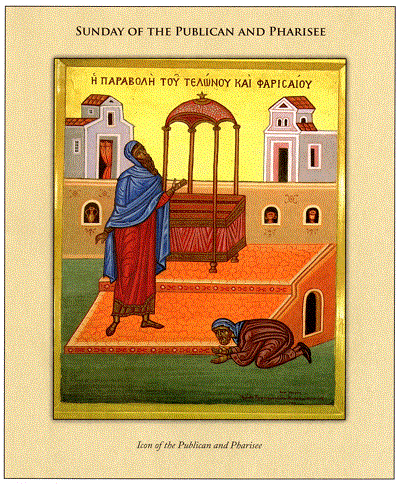 On this second weekend of the five weekends of preparation for the Great Fast, our readings are taken from the second letter of Paul to Timothy and Luke’s Gospel. In Paul’s second letter he urges Timothy, the Bishop of Ephesus, to protect the community from the inevitable impact of false teaching, without fear of the personal attacks which may result. He recommends that Timothy rely on the power of the Scriptures and on the positive proposal of doctrine without being trouble by those who do not accept him. It must be remembered that the Scriptures that Paul refers to are those which are now a part of the Old Testament, the stories and teachings of Jesus that oral tradition maintained, and the things that Paul taught him.
On this second weekend of the five weekends of preparation for the Great Fast, our readings are taken from the second letter of Paul to Timothy and Luke’s Gospel. In Paul’s second letter he urges Timothy, the Bishop of Ephesus, to protect the community from the inevitable impact of false teaching, without fear of the personal attacks which may result. He recommends that Timothy rely on the power of the Scriptures and on the positive proposal of doctrine without being trouble by those who do not accept him. It must be remembered that the Scriptures that Paul refers to are those which are now a part of the Old Testament, the stories and teachings of Jesus that oral tradition maintained, and the things that Paul taught him.
In this letter Paul exhorts Timothy to adhere to what he has been taught from his infancy. His teachers have been principally his mother, grandmother and Paul. Jewish parents were obliged to see that their children were instructed in the Law as soon as they reached the age of five. It is a moot point question to what extent this statement can be applied to any writings of the New Testament as it is not certain if any were written at the time Paul wrote this letter. There were many oral stories, however, that the Christian communities held as sacred.
The parable of the Publican and Pharisee is the last of Luke’s own parables. Although it prominently displays Luke’s doctrinal emphasis (universal salvation, failure of the Law alone to sanctify, divine mercy) it reveals many idioms of Semitic Palestine. The Pharisees believed they were completely “just” before the Law and therefore had such confidence in themselves. They felt that their interpretation of the Law and their behaviors according to the Law, were the true and only way to practice Judaism. Among the various Jewish sects, they felt that they were right and everyone else was wrong (one of the ways of thinking that seems frequently to happen among religions groups).
So, it is critical that we not fall into the same trap as the Pharisees did but, rather only attempt in our own lives to live in accord with the teachings we have received from Jesus Christ. This may mean, however, that we have to evaluate what we learned as children and grow in our knowledge of our faith. Our faith must be intelligent and reasonable.
Think about this!
